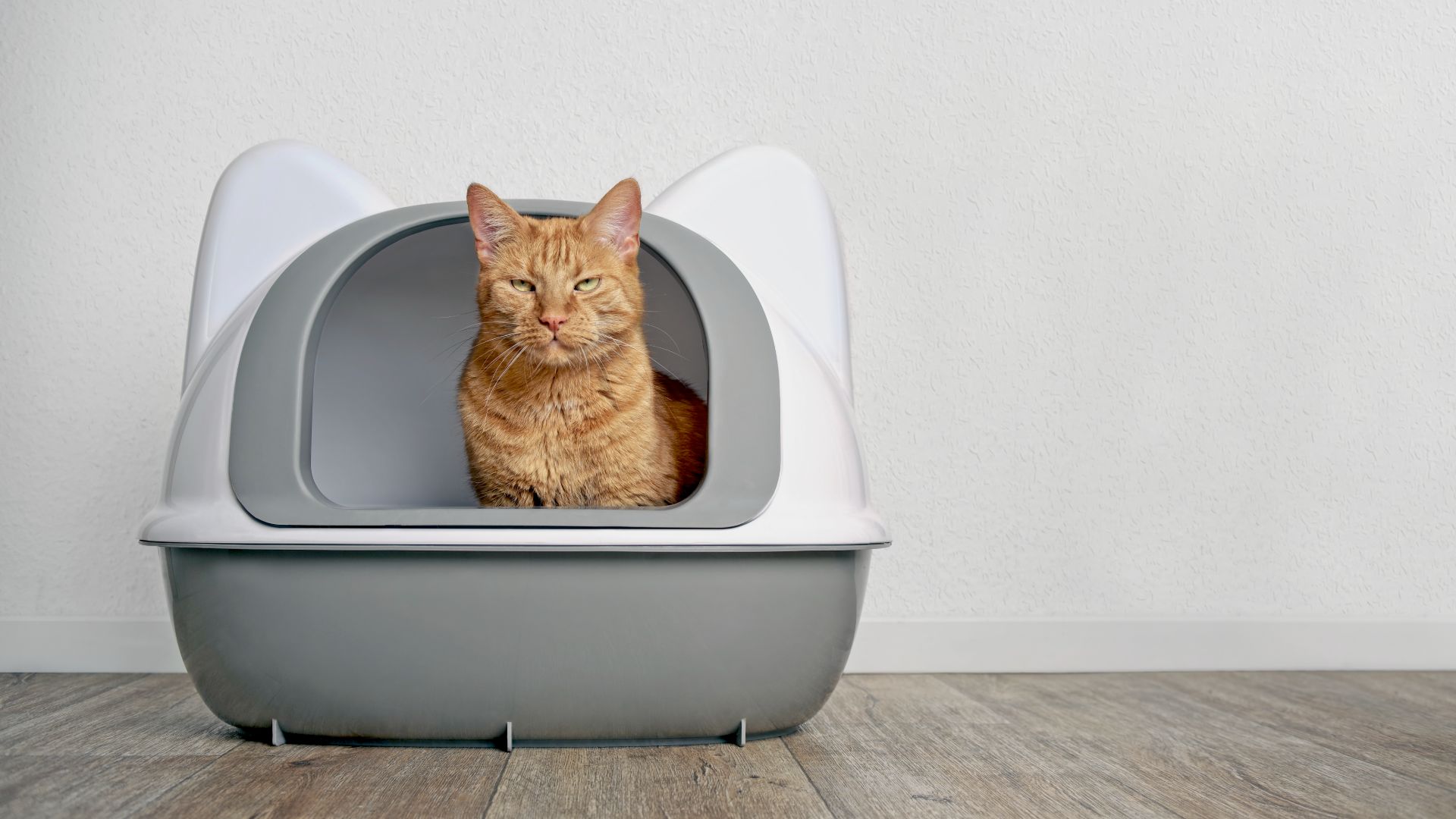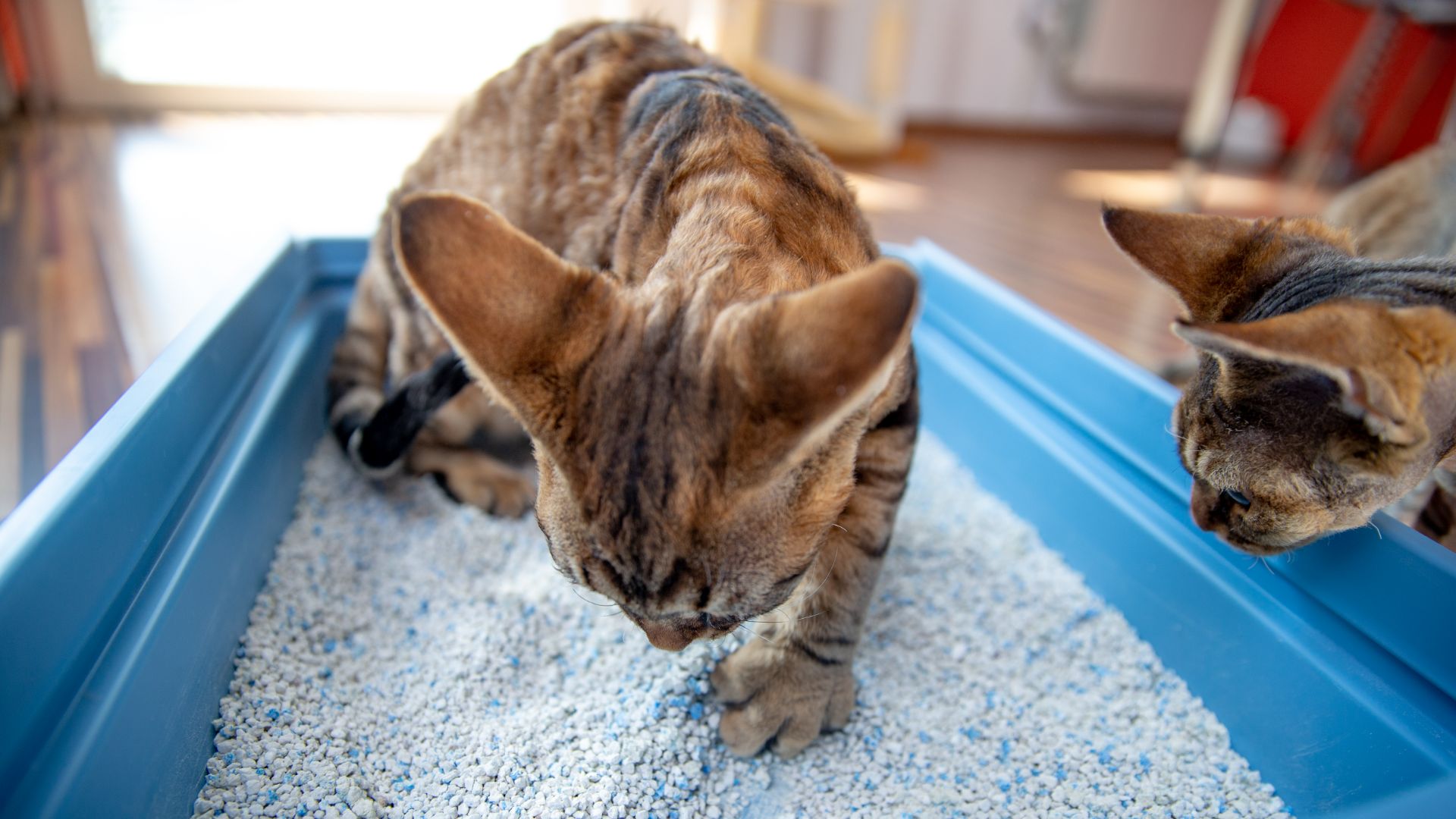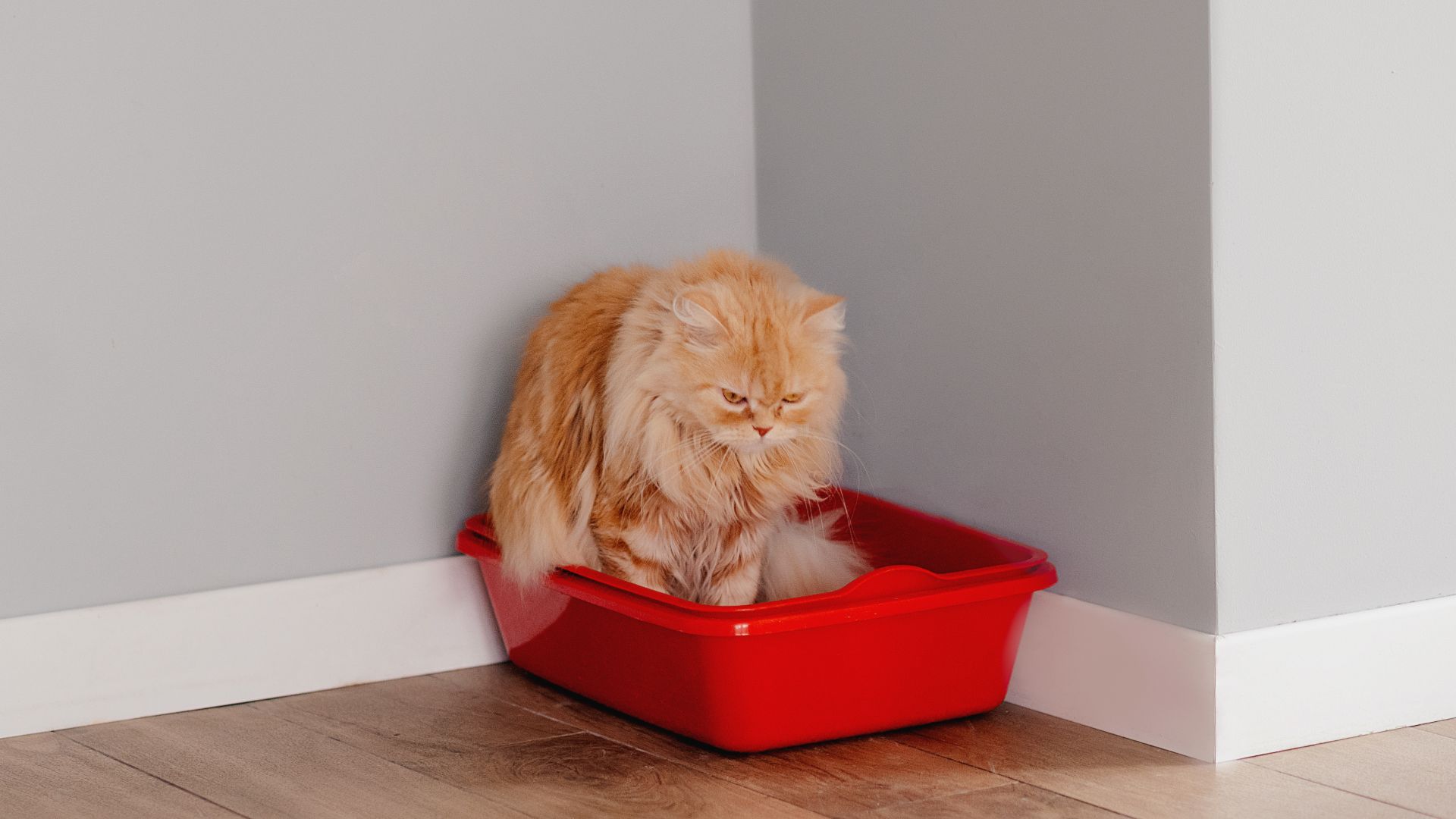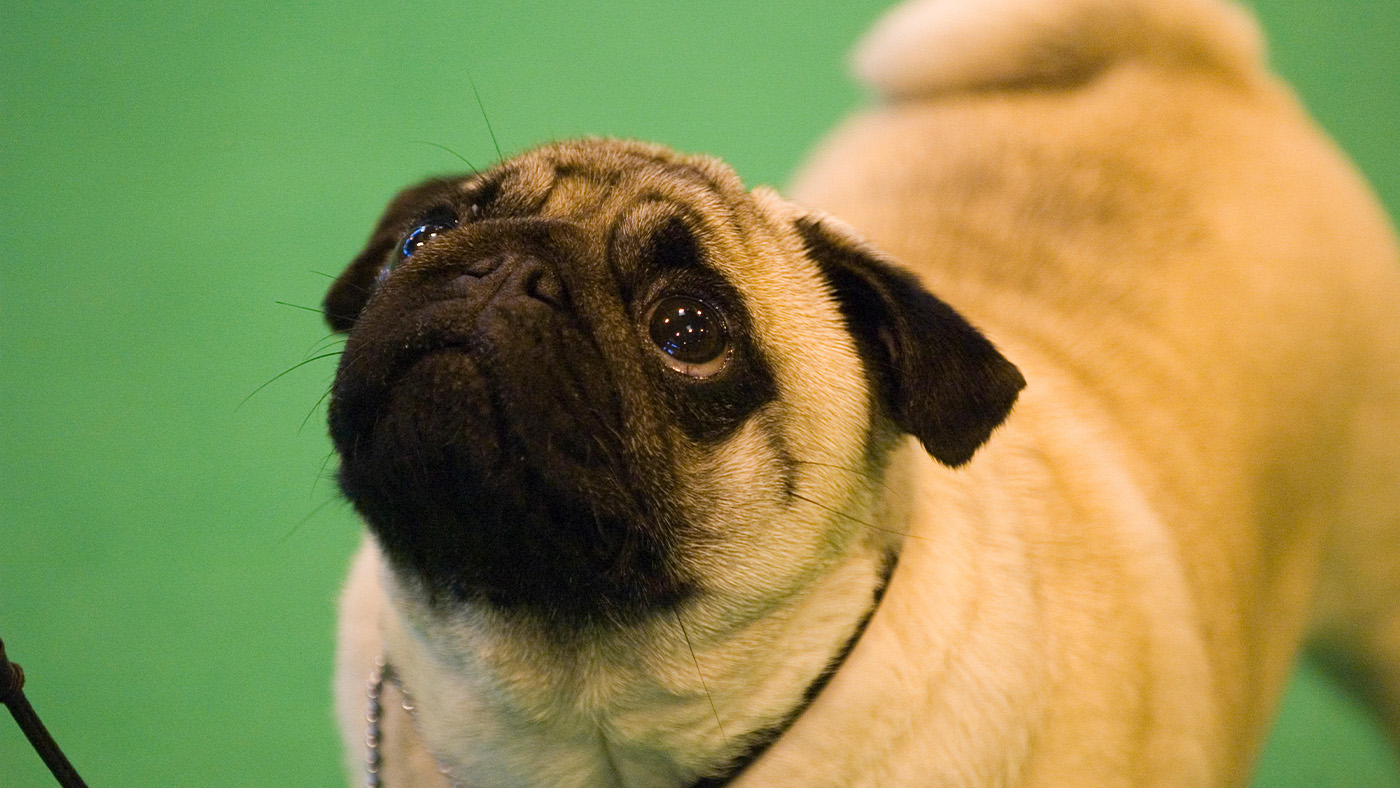Diarrhea in cats: Vet's guide to what's normal and not
Diarrhea in cats is common and can be serious – here’s what you need to know

Diarrhea in cats is something that can occur quite often and if your cat suffers from it frequently, you’ve likely looked everywhere for solutions to this stinky problem.
While using the best cat litter can certainly make cleaning up cat poop a little easier, diarrhea isn’t something you want your cat to be experiencing on a regular basis if you can help it.
Diarrhea is a symptom, not a disease, but there are many common illnesses that can cause diarrhea in cats. To get to the bottom of the problem, you’ll first need to know what makes up normal poop behavior for cats, so you’ll be able to spot abnormal behaviors quickly.
Diarrhea in cats can be treated and it’s best to see your vet right away to get this problem taken care of quickly.
Causes of diarrhea in cats
Just like diarrhea in humans, diarrhea in cats can have hundreds of possible causes. To narrow down the list, your vet will perform tests such as blood work, diagnostic imaging (X-rays or ultrasound), and evaluation of fecal samples.
In some cases, we never find the underlying cause of a cat’s diarrhea, but we are able to address the diarrhea with empirical treatments. A few common causes of diarrhea in cats include:
- Parasites
- Bacterial or viral infections
- Dietary indiscretion
- Gastroenteritis
- Colitis
- Inflammatory bowel disease
- Adverse food reaction
- Hyperthyroidism
- Liver disease
- Kidney disease and kidney failure
- Exocrine pancreatic insufficiency
- Foreign body or bowel obstruction
- Lymphoma
This is by no means an exhaustive list. Because diarrhea is a symptom, and not a disease in and of itself, it is essential to see your vet to have the underlying cause of the diarrhea diagnosed and treated to ensure your cat remains in good health.
What is normal poop behavior for a cat?
To determine whether or not your cat has diarrhea – and how long the problem has been going on – it’s important to first understand what normal cat poop should look like.
To help you with this, vets use a fecal scoring chart like this chart available from Purina ProPlan Veterinary Diets. In this case, an ideal stool is a score 2: firm, segmented, and leaving behind little to no residue. While it’s OK if your cat’s stool varies with an occasional score of 3, routinely scoring 4 or higher is a sign that your cat is having diarrhea.
It is also important to note how often your cat defecates. Normal defecation frequency in a cat can vary depending on the amount of fiber in your cat’s diet, your cat’s hydration status, and how well your cat likes his litter box. A normal cat should defecate at least once a day.
Do you know how often to change cat litter? Cleaning your cat’s litter box daily is a great way to see how much your cat defecates in a typical day, so you’ll be able to spot any changes quickly. A cat with diarrhea may or may not defecate more than usual – this is important to note and tell your vet, as this can help him or her make a diagnosis.

Types of diarrhea in cats
Diarrhea in cats can be classified as being either acute or chronic. Acute diarrhea comes on suddenly, while diarrhea is considered to be chronic if it lasts for two weeks or more. Making note of the duration of your cat’s diarrhea will help your vet diagnose and treat your cat more effectively.
Diarrhea can also be further classified as large bowel or small bowel diarrhea. Small bowel diarrhea is watery to semi-formed, and usually does not come with any increase in frequency of defecation or any increased urgency to defecate.
Large bowel diarrhea, on the other hand, is semi-formed and gelatinous and the affected animal often defecates small volumes very frequently. Animals with large bowel diarrhea also feel an increased urgency to defecate, which can result in accidents outside the litter box.
Based on your cat’s history and symptoms, your vet will determine whether your cat has small bowel or large bowel diarrhea. This can help your vet make a diagnosis as to the cause of your cat’s diarrhea.
Will cat diarrhea go away on its own?
Sometimes diarrhea occurs because your cat ate one of the foods cats should never eat or because you’ve introduced something new into your cat’s diet. In these cases, diarrhea is usually transient and self-limiting, and resolves on its own within 24-48 hours.
Be sure to monitor your cat’s stool closely during this time and be on the lookout for any other signs of illness. If your cat’s diarrhea does not resolve within 48 hours, or if it is accompanied by other symptoms such as vomiting, loss of appetite, lethargy, fever, or other changes in health or behavior, don’t wait – see your vet right away.

Home care for cats with diarrhea
Although it may be tempting to try over the counter products or home remedies to stop your cat’s diarrhea, never give your cat anything that wasn’t prescribed by your vet. Many over the counter products are toxic to cats and should not be given under any circumstances.
Home remedies for diarrhea, such as feeding canned pumpkin, often do not work and may worsen diarrhea in some cases. In general, if your cat is having diarrhea for more than 48 hours it is best not to wait to seek veterinary care. Your cat’s diarrhea will resolve much more quickly with appropriate treatment as recommended by your vet.
When to visit your vet
If your cat’s diarrhea persists for more than 24-48 hours or if it is accompanied by other symptoms such as vomiting, loss of appetite, lethargy, fever, or other changes in health or behavior, then it is time to see your vet.
Your vet will perform a full head-to-tail physical examination of your cat, and may recommend some additional testing such as blood work, diagnostic imaging (X-rays or ultrasound), and evaluation of a fecal sample based on your cat’s symptoms and history.
Your vet may also prescribe empirical medications to treat your cat’s diarrhea. These often include antibiotics to treat infection, probiotics to support GI health, anti-nausea or anti-inflammatory medications to soothe the GI tract, and a bland diet to help settle your cat’s stomach.
In moderate to severe cases of diarrhea, your cat may also need subcutaneous (SQ) or intravenous (IV) fluids to help rehydrate him and prevent dehydration from the ongoing diarrhea. Patients with severe cases of diarrhea may require hospitalization for more intensive care and treatment.
If you’re fed up of cleaning poop, check out our guide to the best automatic cat litter boxes. Or you might also be pondering: Do cats fart? How to deal with cat constipation or how to stop my cat pooping outside the litter box?
Edited by Georgia Guerin and Bethany Stone
Recent updates
This feature was last updated on February 11, 2025.
PetsRadar Newsletter
Get the best advice, tips and top tech for your beloved Pets
Dr. Elizabeth Racine is a small animal general practice vet covering all things pet health and wellness. Her special interests include veterinary behavior, nutrition, and internal medicine.
As a freelance writer, Dr. Racine has written content for major companies in the industry such as the American Kennel Club, Merck Animal Health, Bayer PetBasics, Elanco, and CareCredit. In her free time, Dr. Racine enjoys playing trampoline dodgeball, hiking with her beagle Dasher, and spending time with her three mischievous cats.

